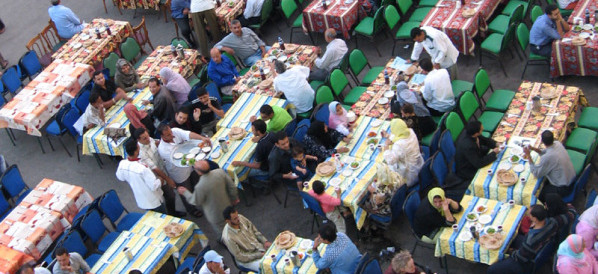 5 Terms
5 TermsHome > Terms > English (EN) > drama and theater
drama and theater
America’s greatest contribution to world theater to date is indisputably the twentiethcentury musical. The American musical entertains audiences from London to Tokyo.
Americans who never patronize other live theater inevitably will attend at least one musical, be it a Broadway touring show or their daughter’s high-school play At the beginning of the twentieth century musical theater was romantic comedy complemented by song and dance numbers not necessarily related to the plot. Long on spectacle and short on substance, such musical comedies as Cole Porter’s Anything Goes entertained audiences across the nation. The first half of the twentieth century saw steady growth in the sophistication and the popularity of the genre, culminating in the heyday of the Broadway musical in the 1950s and 1960s. While plays continued to employ lavish spectacle, song and dance, the storylines (books) were becoming more complex, the characters more developed and themes tinged with serious social issues. In 1943 Richard Rogers and Oscar Hammerstein created Oklahoma with a fully developed plot and songs and dances that served to further the story This advent of the integrated musical was followed by a flurry of blockbuster hits from Rogers and Hammerstein (Carousel, South Pacific, The Kïng and I). Lerner and Lowe (Brigadoon, My Fair Lady), Leonard Bernstein (On the Town, West Side Story) and Frank Loesser (Guys and Dolls) are members of a long list of artists who contributed to the golden age of American musical theater. This uniquely American form naturally became a major cultural export, and, by the 1980s, British and French lyricists and composers (Andrew Lloyd Webber, Alain Boublil, Claude-Michel Schonberg) had developed their own hybrid forms of musical theater to be reimported for long runs on Broadway.
By the middle of the twentieth century American mainstream, non-musical drama had settled into two popular genres. Fourth-wall realism abounded in the form of romantic comedies and “kitchen sink” dramas (usually set in one room of a home and centered around the personal, often family, conflicts of the central characters). These plays often depicted the American dream gone awry. Tennessee Williams wrote about the displaced aristocracy or pseudo-aristocracy (exemplified by heroines like Blanche Dubois in A Streetcar Named Desire) of the new South. Arthur Miller, in Death of a Salesman, brought audiences a painfully honest portrayal of the common person as tragic hero.
Lorraine Hansberry’s 1959 hit, A Raisin in the Sun, is an African American variation on this theme. Set in an urban America caught in the growing pains of desegregation and centered around one family’s encounter with racial discrimination in housing, it enjoyed a successful Broadway run (ironically to mostly segregated audiences), winning its author a Pulitzer Prize.
Realistic drama has survived through the century manifested later in plays by such authors as August Wilson, who has chronicled the dreams and frustrations of African Americans in plays set in each decade of the century While Wilson’s plays are largely linear realism, they are unique in the use of rich poetic language.
Neil Simon is the most commercially successful contemporary creator of the romantic comedy version of dramatic realism. His comedies from the 1960s, such as Barefoot in the Park and The Odd Couple, have endured with regular performances at dinner and community theaters. His prolific and popular body of work also includes the autobiographical comic dramas Brighton Beach Memoirs and Biloxi Blues, both written in the 1980s, which look at life from the perspective of growing up Jewish in America.
Several of Simon’s plays, along with many other authors’ plays in the realist genre, have been turned into films. It could be argued that they are just as, if not more, suited to that medium with its ability to create a sense in the audience of eavesdropping on a private world.
Since the expressionist movement at the start of the twentieth century fourth-wall realism has shared the American stage with more selfreferential, non-realistic forms.
Many contemporary American playwrights turned away from linear plot structures (in which each event seems inevitably to trigger the next, building to a predestined climax) to a style that celebrates the live and immediate audience/performer relationship. These plays often purposely draw attention to the means of production, constantly reminding the audience that they are watching a play instead of reality Many of the authors who have embraced this presentational style (inspired by the groundbreaking work of German playwright Bertolt Brecht) find it more suitable for framing the political and social critiques inherent in their works. Asian American playwright David Henry Hwang’s play M. Butterfly, draws a parallel between the sexist attitudes of patriarchal culture and the racist attitudes of the Western world towards the “exotic” East. Hwang uses several devices that highlight the artificial nature of performance: the main character narrates the story speaking directly to the audience; several of the actors play more than one role; the play leaps backwards and forwards in time rather than following a linear plot line. These devices serve to remind the audience that they are watching a performance, and, by de-emphasizing plot, the play steers the audience’s attention to the social and political issues behind the dramatic events.
Some playwrights, such as Edward Albee and Sam Shepard, mix elements of realism with surreal and absurd events to create their own deliberate distortions of the American dream. Albee’s works often focus on the behaviors of the East Coast privileged class, while Shepard deromanticizes the frontier spirit of the West. Other theater artists, such as Robert Wilson, create works that stretch the boundaries of nearly every definition of “theatre” by staging works that might last up to 23 hours (Ka Mountain, 1973), dispense with storyline altogether and are as much visual art as text-based drama.
These departures from realism are, in part, reactions against the realism of film and television. Because the camera can establish verisimilitude so much more effectively, many contemporary playwrights have sought to create forms that integrate and embrace the uniquely live nature of the theater experience.
- Part of Speech: noun
- Synonym(s):
- Blossary:
- Industry/Domain: Culture
- Category: American culture
- Company: Routledge
- Product:
- Acronym-Abbreviation:
Other Languages:
Member comments
Terms in the News
Billy Morgan
Sports; Snowboarding
The British snowboarder Billy Morgan has landed the sport’s first ever 1800 quadruple cork. The rider, who represented Great Britain in the 2014 Winter Olympics in Sochi, was in Livigno, Italy, when he achieved the man-oeuvre. It involves flipping four times, while body also spins with five complete rotations on a sideways or downward-facing axis. The trick ...
Marzieh Afkham
Broadcasting & receiving; News
Marzieh Afkham, who is the country’s first foreign ministry spokeswoman, will head a mission in east Asia, the state news agency reported. It is not clear to which country she will be posted as her appointment has yet to be announced officially. Afkham will only be the second female ambassador Iran has had. Under the last shah’s rule, Mehrangiz Dolatshahi, a ...
Weekly Packet
Language; Online services; Slang; Internet
Weekly Packet or "Paquete Semanal" as it is known in Cuba is a term used by Cubans to describe the information that is gathered from the internet outside of Cuba and saved onto hard drives to be transported into Cuba itself. Weekly Packets are then sold to Cuban's without internet access, allowing them to obtain information just days - and sometimes hours - after it ...
Asian Infrastructure Investment Bank (AIIB)
Banking; Investment banking
The Asian Infrastructure Investment Bank (AIIB) is an international financial institution established to address the need in Asia for infrastructure development. According to the Asian Development Bank, Asia needs $800 billion each year for roads, ports, power plants or other infrastructure projects before 2020. Originally proposed by China in 2013, a signing ...
Spartan
Online services; Internet
Spartan is the codename given to the new Microsoft Windows 10 browser that will replace Microsoft Windows Internet Explorer. The new browser will be built from the ground up and disregard any code from the IE platform. It has a new rendering engine that is built to be compatible with how the web is written today. The name Spartan is named after the ...
Featured Terms
iftar
During the month of Ramadan, Muslims fast from dawn to sunset. Iftar refers to the evening meal that breaks the fast for the day, and is usually done ...
Contributor
Featured blossaries
farooq92
0
Terms
47
Blossaries
3
Followers
Most successful child star
 5 Terms
5 Terms
Browers Terms By Category
- Biochemistry(4818)
- Genetic engineering(2618)
- Biomedical(4)
- Green biotechnology(4)
- Blue biotechnology(1)
Biotechnology(7445) Terms
- Hand tools(59)
- Garden tools(45)
- General tools(10)
- Construction tools(2)
- Paint brush(1)
Tools(117) Terms
- Cultural anthropology(1621)
- Physical anthropology(599)
- Mythology(231)
- Applied anthropology(11)
- Archaeology(6)
- Ethnology(2)
Anthropology(2472) Terms
- Conferences(3667)
- Event planning(177)
- Exhibition(1)
Convention(3845) Terms
- Christmas(52)
- Easter(33)
- Spring festival(22)
- Thanksgiving(15)
- Spanish festivals(11)
- Halloween(3)




